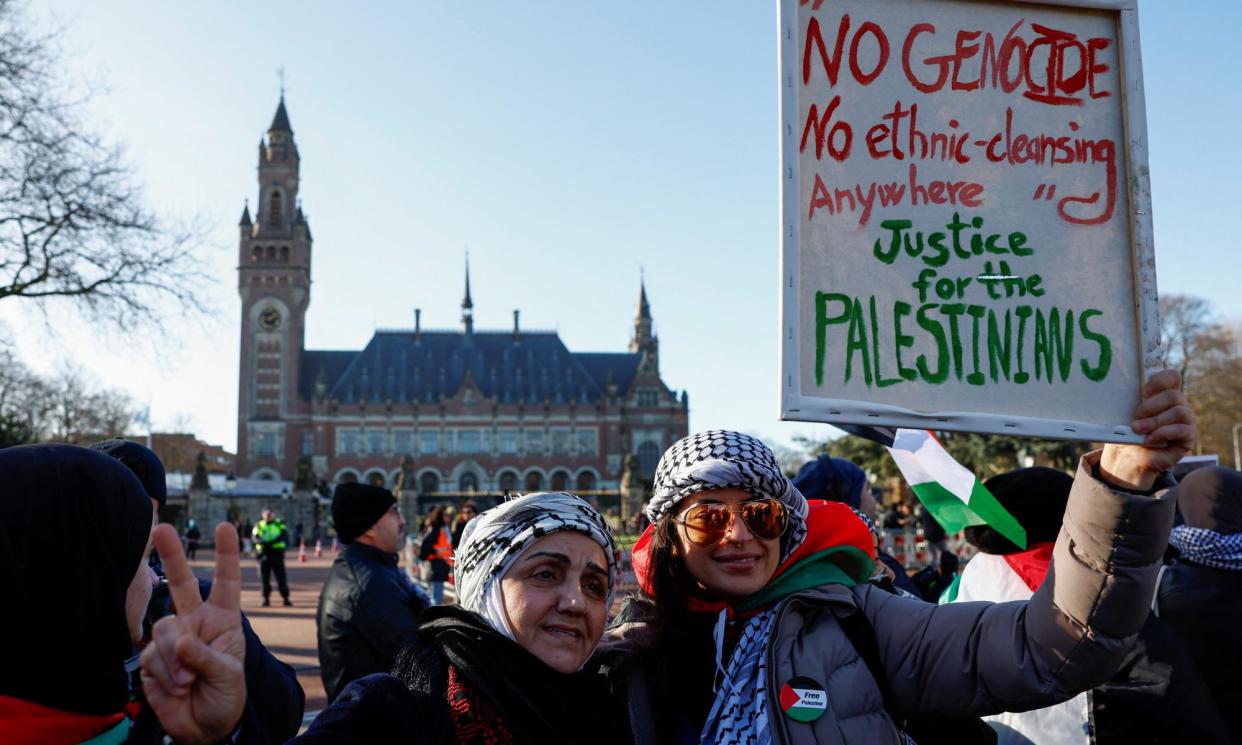World court’s interim ruling on genocide in Gaza: key takeaways

The world’s court has ordered Israel to prevent genocidal acts in Gaza, including by its forces on the ground, and allow humanitarian aid into the territory.
Here are some of the key takeaways:
The court sees a risk of genocide in Gaza
The international court of justice (ICJ) has not ruled on whether Israel has committed genocide – that will be decided at a later date – but its provisional ruling provides the clearest indication yet of which direction the judges are leaning.
Its 29-page court order, released on Friday, is long, convoluted and filled with legalese, but it does hint that a majority of the judges see a credible risk to Palestinians under the genocide convention.
In paragraph 74, it states that “there is a real and imminent risk that irreparable prejudice” will be caused to the rights of Palestinians in Gaza under the genocide convention.
Israel’s actions – and words – are being closely assessed
In the order, the ICJ said Israel’s military operation “had resulted in a large number of deaths and injuries, as well as the massive destruction of homes, the forcible displacement of the vast majority of the population, and extensive damage to civilian infrastructure”.
Critically, it said it had “taken note” of a number of statements made by senior Israeli officials. These included the country’s defence minister, Yoav Gallant, saying Israel was fighting “human animals” and “we will eliminate everything”, and its president, Isaac Herzog, saying: “It’s an entire nation out there that is responsible.”
Paragraph 54 of the order stated it was the court’s view, in light of the above statements, that “at least some” of South Africa’s claims that Palestinian rights needing protection under the genocide convention were “plausible”.
Further down, it ordered Israel to “take all measures within its power to prevent and punish the direct and public incitement to commit genocide in relation to members of the Palestinian group in the Gaza Strip”.
There was no call for a ceasefire
The court agreed with most of the requests made by South Africa, including ordering humanitarian access, but notably absent was its demand for an immediate halt to Israel’s military operation. Friday’s court order did not mention the word “ceasefire”.
In a partial explanation of its decision, the court said the measures it took did not need to “be identical to those requested” by South Africa.
The case will not go quiet
It could take years for the court to rule on whether Israel has committed genocide. Another genocide case, brought to the ICJ in 2019 by the Gambia against Myanmar for its mass killing and forced displacement of its Rohingya Muslim minority, is still continuing.
However, that is not to say the case will go quiet. As well as the political battle that will now be fought on how to enforce the court orders, the judges told Israel to submit a report “on all measures taken to give effect to its order” within a month.
Given that the Israeli prime minister, Benjamin Netanyahu, criticised the court for its “willingness” to discuss the case at all – which he said was a “disgrace that will not be erased for generations” – it is unclear how the country will respond.
A cabinet minister in Netanyahu’s coalition government, Itamar Ben-Gvir, provided a shorter response to the ICJ ruling, tweeting: “Hague Shmague.”


